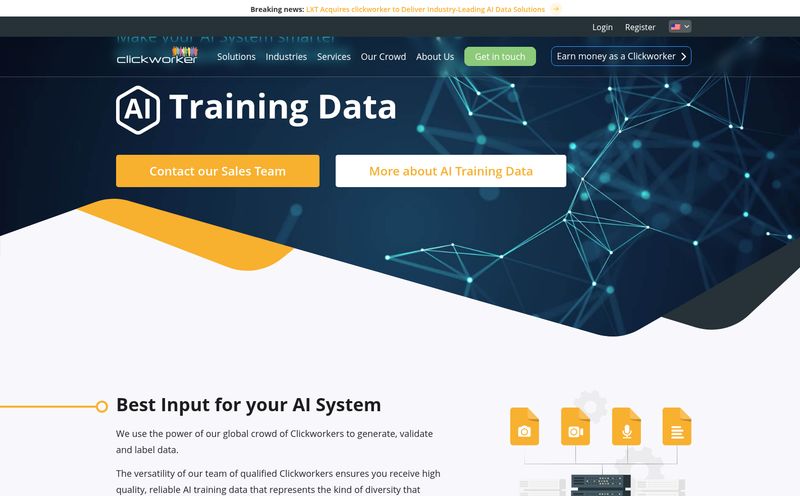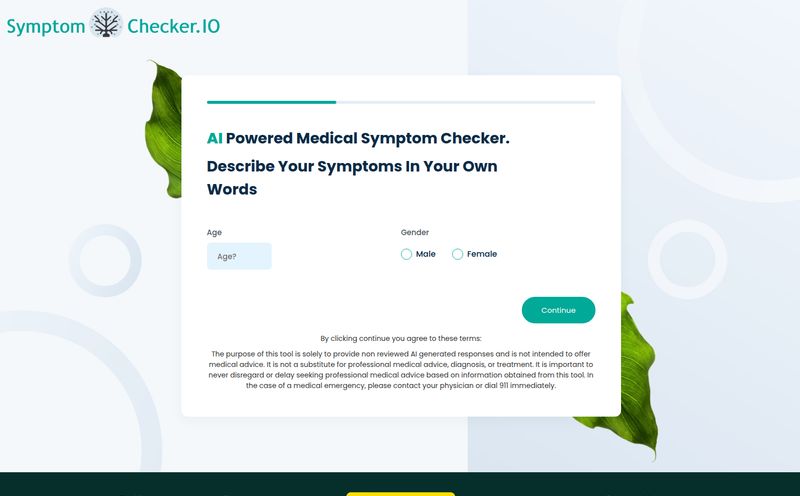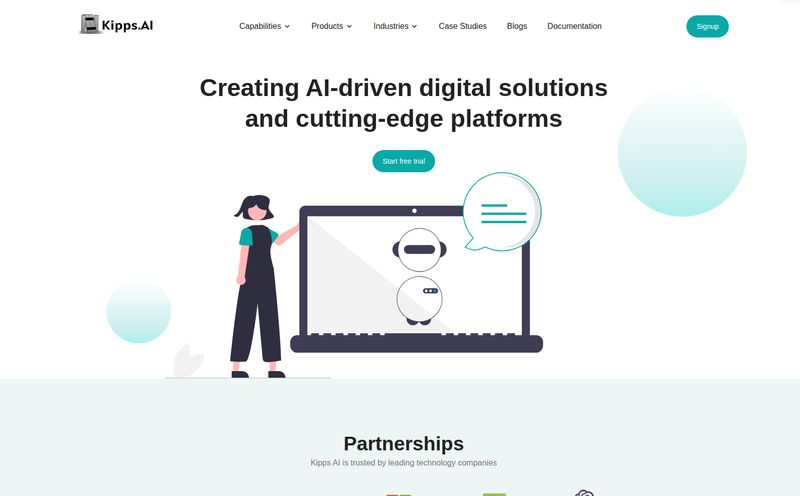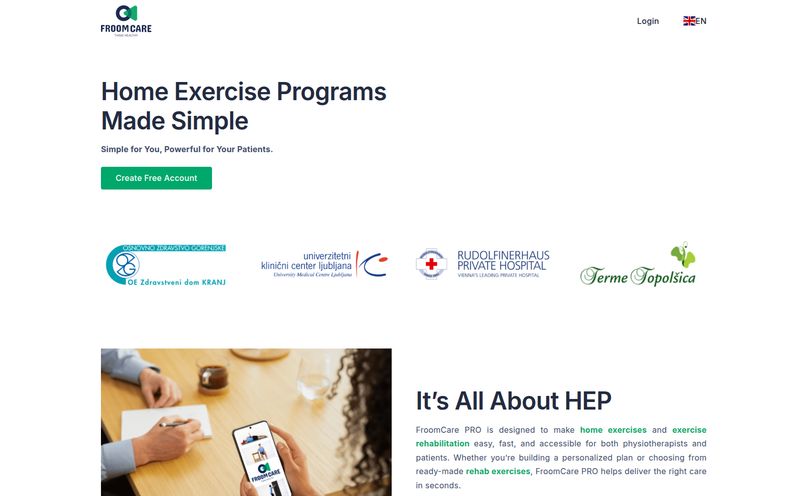I’ve been in the digital marketing and trends space for a long time. Long enough to see fads come and go faster than you can say “growth hack.” One minute we’re all obsessed with something, the next it’s gone. But some trends have staying power, and the move towards hyper-personalization is one of them. We want our news, our shopping, and our entertainment tailored just for us. So, it was only a matter of time before that laser focus turned to the most personal thing of all: our health.
Let's be real, navigating health advice online is a minefield. One article says coffee is a superfood, the next claims it'll stunt your growth. You end up with a dozen browser tabs open, a sense of dread, and a shopping cart full of supplements you're not even sure you need. It’s exhausting.
So when I stumbled across the Hedda app, my interest was piqued. Slick name. A sleek, dark-mode website that screams modern tech. And a huge promise: "Une santé accessible et optimisée" – or for my non-French-speaking friends, "Accessible and optimized health." It claims to use AI for a personalized diagnosis and expert recommendations. My inner skeptic and my inner tech nerd immediately started a debate. Could an app really untangle the mess of personal wellness? I had to find out.
So, What Exactly is the Hedda App?
At its core, the Hedda App isn't just another calorie counter or step tracker. We have plenty of those. Instead, it positions itself as a personal health optimizer. Think of it less like a nagging fitness watch and more like a quiet, data-obsessed translator for your body's signals. It’s built on a simple, yet powerful, three-step premise:
- Diagnosis: You start by taking a comprehensive quiz. This is the foundation of everything. The app asks questions to build a profile of your lifestyle, symptoms, goals, and history.
- Recommendations: This is where the AI kicks in. It takes your answers, crunches the numbers, and generates a set of personalized recommendations designed to get you from where you are to where you want to be.
- Monitoring: The app then helps you track your progress over time, creating a feedback loop to help you maintain a sustainable, long-term health plan.
It’s an ambitious goal, trying to be your personal health consultant that lives in your pocket. It's available on both the App Store and Google Play, which is a good sign of accessibility right from the get-go.
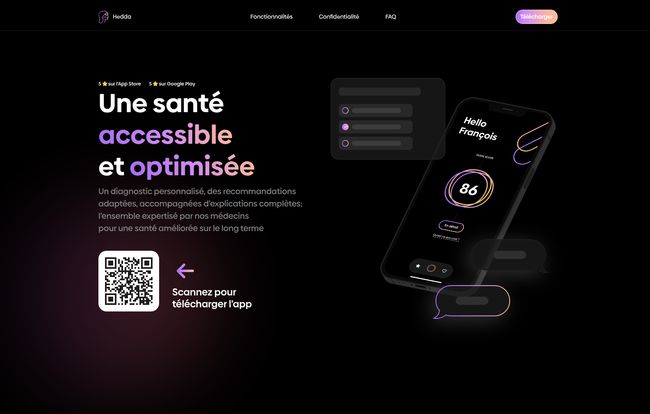
Visit Hedda App
The AI Doctor Will See You Now
The real star of the show here is the AI-driven diagnosis. This is Hedda’s main differentiator in a sea of wellness apps. We’re not just talking about an algorithm that says, “You didn’t walk 10,000 steps, try harder tomorrow.” We’re talking about a system designed to connect the dots between your daily habits, your stated feelings, and your long-term health objectives.
The entire process hinges on that initial quiz. This is both its greatest strength and its potential Achilles' heel. In the world of data, we have a saying: Garbage In, Garbage Out (GIGO). The quality of Hedda’s recommendations is directly tied to the quality and honesty of the information you provide. If you fudge the numbers on how many glasses of wine you really have a week, the AI can't give you a truly accurate picture. But if you’re candid, you’re essentially providing the raw materials for a deeply customized plan.
I imagine it must go beyond simple “yes/no” questions, likely touching on sleep quality, stress levels, dietary habits, energy fluctuations… all the little things that make up the complex tapestry of your well-being. The phone mockup on their site shows a health score of '86', which suggests it distills all this complex data into a single, understandable metric. That's a clever way to visualize progress.
Beyond the Diagnosis: The Nitty-Gritty Features
Okay, so you’ve poured your heart out to the AI. What happens next? A diagnosis is useless without a treatment plan, right? Hedda seems to focus on delivering actionable insights rather than just raw data.
Custom-Built Recommendations
This is where the rubber meets the road. Based on your profile, Hedda provides a set of recommendations. The promise of “expert recommendations” is interesting. Does this mean the AI is trained on protocols developed by human doctors and nutritionists? Or that it flags issues for a human expert to review? The site is a bit vague on this, but the former seems more likely for a scalable app. The goal is a sustainable approach. This isn't about a 30-day shred; it’s about making small, intelligent changes that add up over time. I’m far more interested in a tool that helps me build lasting habits than one that just yells at me for a month.
Monitoring and Information Access
Hedda also includes progress monitoring. This is crucial. Seeing that score of '86' potentially climb to a '90' or '92' is a powerful motivator. It gamifies the process of getting healthier, which our brains are wired to love. It also provides access to health information, hopefully tailored to your specific needs. So instead of you having to Google “what helps with mid-afternoon energy slumps,” the app might proactively serve you an article or a tip about blood sugar regulation because it knows that's something you struggle with. That's a huge step up from the chaos of self-research.
The Good, The Bad, and The AI
No tool is perfect, especially not in the fast-moving world of tech. From my analysis, here’s my breakdown of where Hedda likely shines and where you might want to be cautious.
The Upside: A Truly Personal Touch
The biggest pro is right there in the name: personalization. Most of us fail at health goals not because we're lazy, but because we’re trying to follow generic advice that wasn’t designed for our unique bodies and lifestyles. A plan that understands you’re a night owl, have a mild gluten sensitivity, and are training for a 10k is infinitely more valuable than a cookie-cutter PDF download. This focus on a sustainable, long-term approach is the only thing that actually works, in my experience.
Points of Hesitation: Can You Fully Trust the Algorithm?
And now for the flip side. Placing your health in the hands of an AI requires a leap of faith. While AI in medicine is making incredible strides, as a study in Nature Medicine points out, there's always the "black box" problem. We don’t always know why the AI made a specific recommendation. For some, that’s a deal-breaker. They want a human being they can talk to and question.
And as I mentioned before, its effectiveness is completely dependent on that initial diagnosis. If the quiz isn't designed well, or if the user isn't completely honest, the recommendations could be ineffective or, at worst, misguided. It’s a powerful tool, but it’s not magic.
Let's Talk Money: The Hedda App Pricing
Here’s the million-dollar question: what does it cost? I scoured their website, clicked every link, and the pricing is… well, it's a mystery. There's no public pricing page that I could find. This isn't uncommon for new apps launching in the market. They're often more focused on user acquisition and refining the product before slapping a price tag on it.
My educated guess? It's likely a freemium model. You get the basic diagnosis and some teaser recommendations for free, but to unlock the full, detailed, ongoing plan and monitoring, you'll need to subscribe. I’d expect a monthly or annual subscription, probably in the range of other premium wellness apps. But this is pure speculation. If you decide to download it, do me a favor and drop a comment below to let us all know what the deal is!
My Final Take: A Glimpse into the Future of Wellness?
So, what’s the verdict? I'm cautiously optimistic. The Hedda app represents a trend I can get behind: moving away from one-size-fits-all health advice and toward data-driven, personlized wellness. The concept is brilliant. It’s smart, it’s modern, and it addresses a very real pain point.
It’s not a replacement for a doctor—let's be crystal clear about that. No app is. But it could be a powerful companion tool for the individual who is serious about optimizing their health but feels lost in the noise. It’s for the data-curious, the self-improver, the person who wants to understand the 'why' behind their body's signals.
Will it work for everyone? Probably not. But does it represent a significant step in the right direction for consumer health tech? Absolutely. I’m excited to see how it develops and the impact it has. The future of health is personal, and tools like Hedda are paving the way.
Frequently Asked Questions about the Hedda App
- What is the Hedda App?
- Hedda is a mobile wellness app that uses an AI-driven diagnosis to provide personalized health recommendations. It focuses on creating a sustainable, long-term plan for health optimization based on a user's individual quiz answers and ongoing progress.
- How does the AI diagnosis in Hedda work?
- The process starts with a detailed quiz about your lifestyle, health goals, and symptoms. The app's AI then analyzes this information to identify areas for improvement and creates a personalized set of recommendations and an action plan.
- Is the Hedda App free to use?
- The official website doesn't currently display pricing information. It's possible the app operates on a freemium model, where a basic diagnosis is free and a premium subscription is required for full features, but this is unconfirmed.
- Can Hedda replace my doctor?
- No, absolutely not. The Hedda app is a wellness tool designed to help you optimize your lifestyle and habits. It is not a medical device and should not be used to diagnose or treat medical conditions. Always consult a qualified healthcare professional for any health concerns.
- What kind of recommendations does Hedda provide?
- While specific examples aren't listed, the recommendations are implied to cover various aspects of wellness, potentially including diet, exercise, sleep hygiene, stress management, and supplements, all tailored to your unique profile.
- Is my data safe with the Hedda App?
- The app's website has a dedicated section for 'Confidentialité' (Confidentiality), suggesting they take data privacy seriously. As with any app that handles sensitive health information, it's wise to review their privacy policy before signing up to understand how your data is stored and used.
Reference and Sources
- Official Hedda Website (URL not publicly available at time of writing)
- Topol, E. J. (2019). High-performance medicine: the convergence of human and artificial intelligence. Nature Medicine, 25(1), 44-56. https://www.nature.com/articles/s41591-018-0300-7
